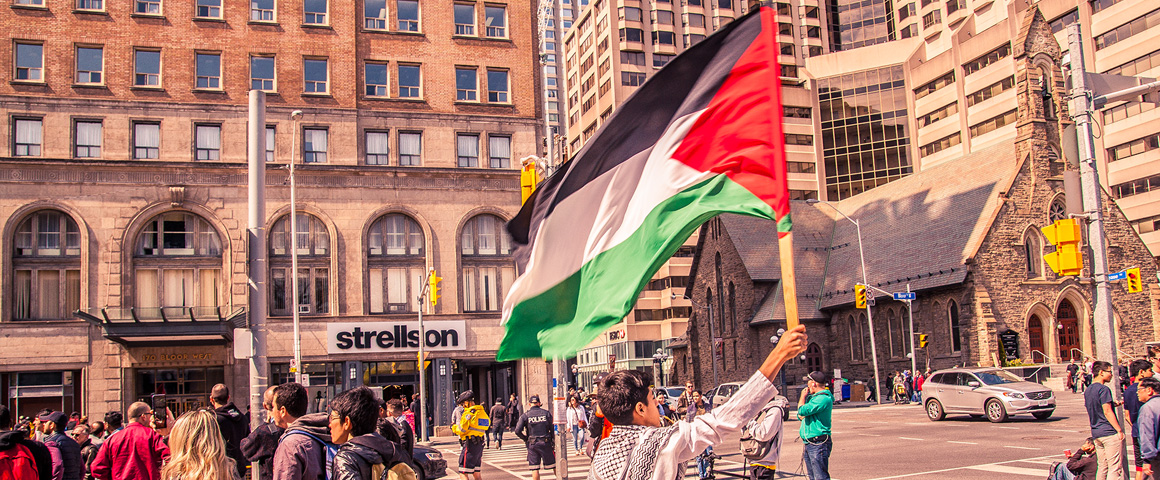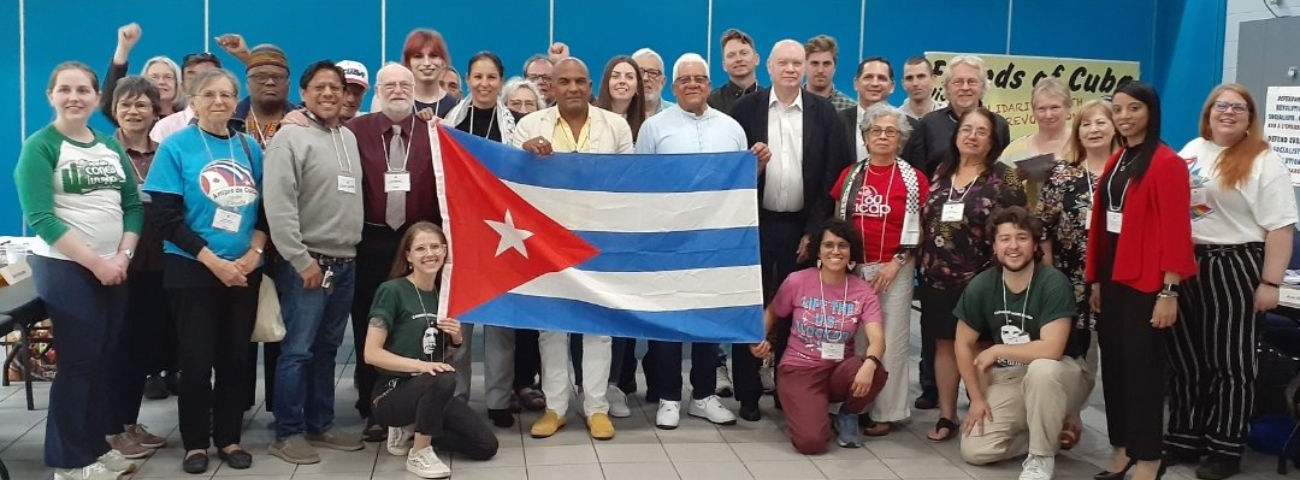By Adrien Welsh
Let’s be clear: what’s happening in Gaza right now is genocide.
So far, more than 11,000 Palestinians have died – the majority of them women and children – and at least 26,000 have been wounded. Of these, 20 percent are from north Gaza, having fled to the south after being told by Israel to go there before its ground offensive in the north.
There is talk of 50 percent of hospitals and homes destroyed, at least five United Nations Relief and Works Agency schools bombed, 3,000 bodies under the rubble and 700,000 refugees in Gaza’s fifty-eight schools, none of which have a capacity exceeding 1,000. As for the wounded, the central hospital alone is home to 6,000, although it has only 500 beds.
The list goes on and on.
And yet, in governments across Canada as well as in the media, it’s “Shhh … we’re busy killing!” Quebec Premier François Legault even took advantage of the situation to open a Quebec Office in Tel Aviv.
As megaphones for Israel’s guns, governments and media here seek at all costs to discredit any demonstration of solidarity with the Palestinian people. When a fistfight broke out at Concordia University between pro-Palestinians and pro-Israelis (with the backing of the administration), “pro-Hamas extremists” were blamed. The mainstream media highlights the dubious preaching of a far-right imam like Adil Charkaoui, but it refuses to translate Israeli headlines that speak of ethnic cleansing.
This kind of individualized meandering reduces the current genocide to a series of “local scuffles.” It is all designed to make us forget that this is a struggle for national, and therefore universal liberation, directed against the common enemy of the world’s peoples and working class: imperialism.
Despite this nauseating propaganda, more and more voices are being raised, to such an extent that both globally and locally, Canada is isolated by its refusal to support Palestine and to not sanction Israel.
In India, trade unions are lambasting Prime Minister Narendra Modi’s plan to send Indian workers to replace the tens of thousands of Palestinians whose work permits in Israel have been revoked. In Belgium, the Front commun syndical (Trade Union Common Front) is ordering its members not to handle planes carrying weapons to Israel. In France, the Confédération générale du travail (CGT) has called for a blockade of Israeli companies. A growing number of countries are suspending relations with Israel, while mobilizations and actions in solidarity with Palestine intensify.
Although slower in coming, labour support in Canada is taking a stand in solidarity with Palestine and demanding, at the very least, a ceasefire. Various organizations have organized blockades in front of companies exporting arms to Israel.
Rarely in Canada has there been so much enthusiasm and so much potential for organizing around international issues over the past two decades. This is precisely what the ruling class fears: that the struggle of the Palestinian people will reveal the clear links between Zionism, imperialism and exploitation. They fear that, at a time of record inflation and rising interest rates, when public sector workers are being impoverished and public services, healthcare and education are being dismantled, working people will discover that when it comes to war, the government’s pockets are bottomless.
After all, in just 18 months, Canada’s military spending in Ukraine has risen to almost $10 billion, arms exports to Israel increased by 68 percent between 2018 and 2021, and Canada’s military budget will rise by 73 percent between 2017 and 2027.
In 1917, Canadian unions blocked deliveries of arms and other aid to Canadian troops fighting the Bolshevik Revolution. The Alberta Federation of Labour even threatened a general strike in the event of a Canadian attack. In the post-war years, the CGT in France blocked ships and trains carrying munitions to reinforce the Indochinese front, and in 1962 the same union called a general strike and paralyzed the whole country to force an end to the war in Algeria.
It’s this kind of internationalism – working-class internationalism – that the ruling class fears more than anything else. Because the moment workers and the people understand that they have more in common with their shared struggle against a shared enemy, they gain a true class consciousness. They realize that capitalism’s mantra is “produce to destroy” and to do so in the most violent way possible. They are no longer content with simple adjustments.
Nelson Mandela insisted that the struggle of the South African people would not be complete without the liberation of Palestine. Today, we can say that the liberation of Palestine will never be complete without the overthrow of imperialism.
In this sense, the struggle of the Palestinian people is also our own.
Support socialist media!
If you found this article useful, please consider donating to People’s Voice or purchasing a subscription so that you get every issue of Canada’s leading socialist publication delivered to your door or inbox!
For over 100 years, we have been 100% reader-supported, with no corporate or government funding.




